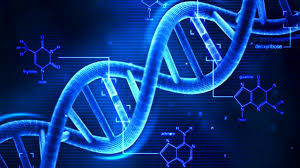 For a few years now, the advent of DNA technology has been heralded as a victory for justice and protection against wrongful accusations in criminal cases. Technology that was once beyond our grasp has now been able to conclusively prove the innocence or guilt of thousands of people in criminal trials.
For a few years now, the advent of DNA technology has been heralded as a victory for justice and protection against wrongful accusations in criminal cases. Technology that was once beyond our grasp has now been able to conclusively prove the innocence or guilt of thousands of people in criminal trials.
Yet, DNA advancements cut both ways. There is a new report from the UK’s The Telegraph that details a sinister scenario in which criminals can alter their DNA to avoid criminal prosecution.
“A revolutionary genetic editing technique designed to repair faulty DNA could be used by criminals to evade justice, experts have said. The Crispr system acts like molecular scissors to snip away damaged genes and replace them with healthy code and it is hoped it will one day fix genetic diseases such as sickle cell anaemia, cystic fibrosis and muscular dystrophy. But Professor George Church, of Harvard University, who pioneered the use of the Crispr technique, said it would be possible for criminals to use the technique to disappear from forensic databases or evade detection.
Obviously, this is a concern for law enforcement authorities who have used DNA testing to convict suspects of criminal charges. It’s also a concern for criminal defense attorneys who are concerned that alteration of DNA tests can cast suspicion on a test that could reliably prove their clients innocent of charges.
In any technological advance, the progress comes with benefits and drawbacks. There are always going to be those who use technological advancements for their own purpose. That doesn’t mean we throw the baby out with the bath water. We do our best to guard against manipulation of DNA data so that truth prevails. That’s what free societies do that are unafraid of progress
